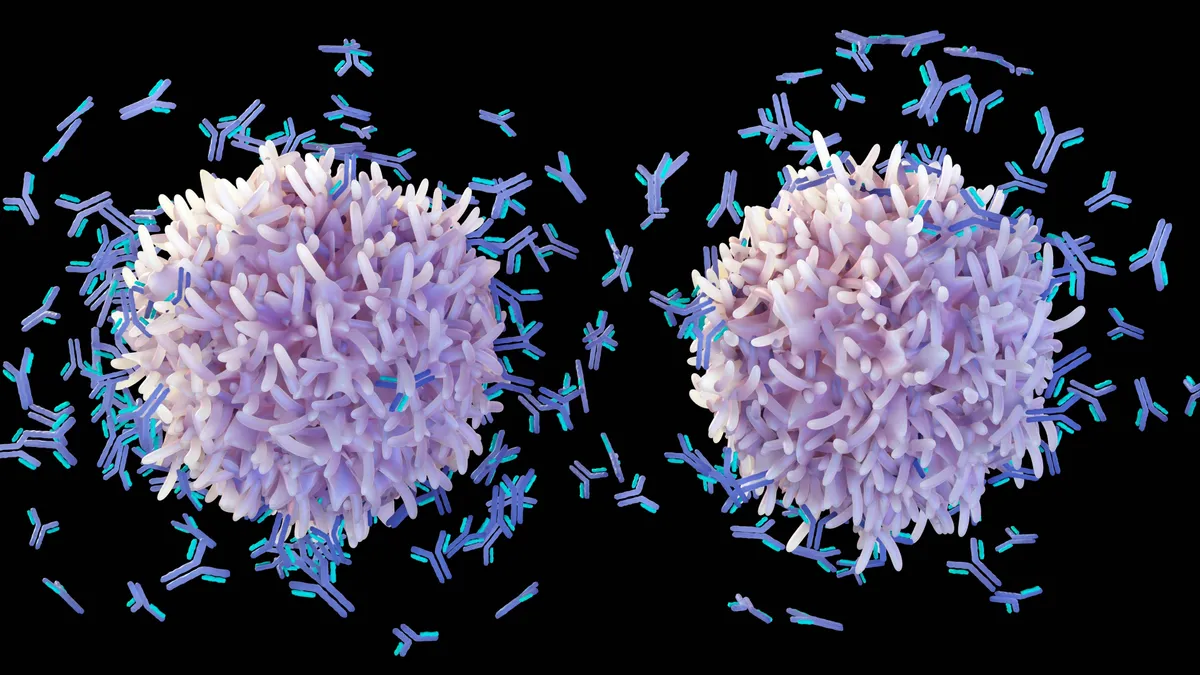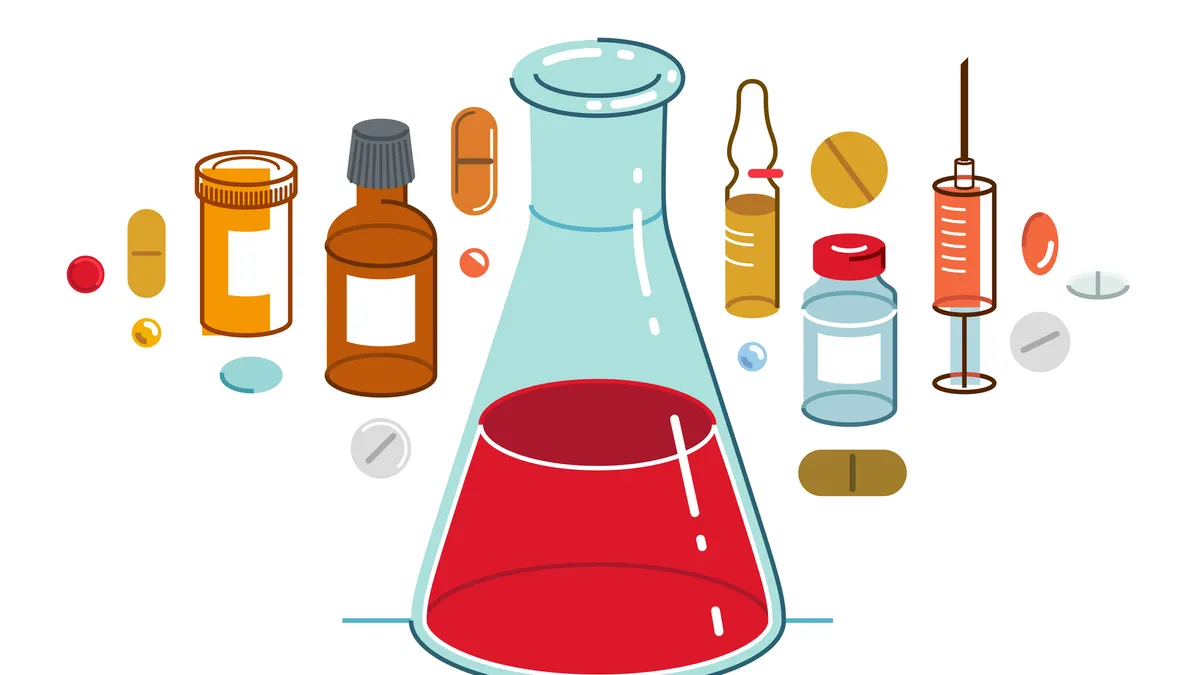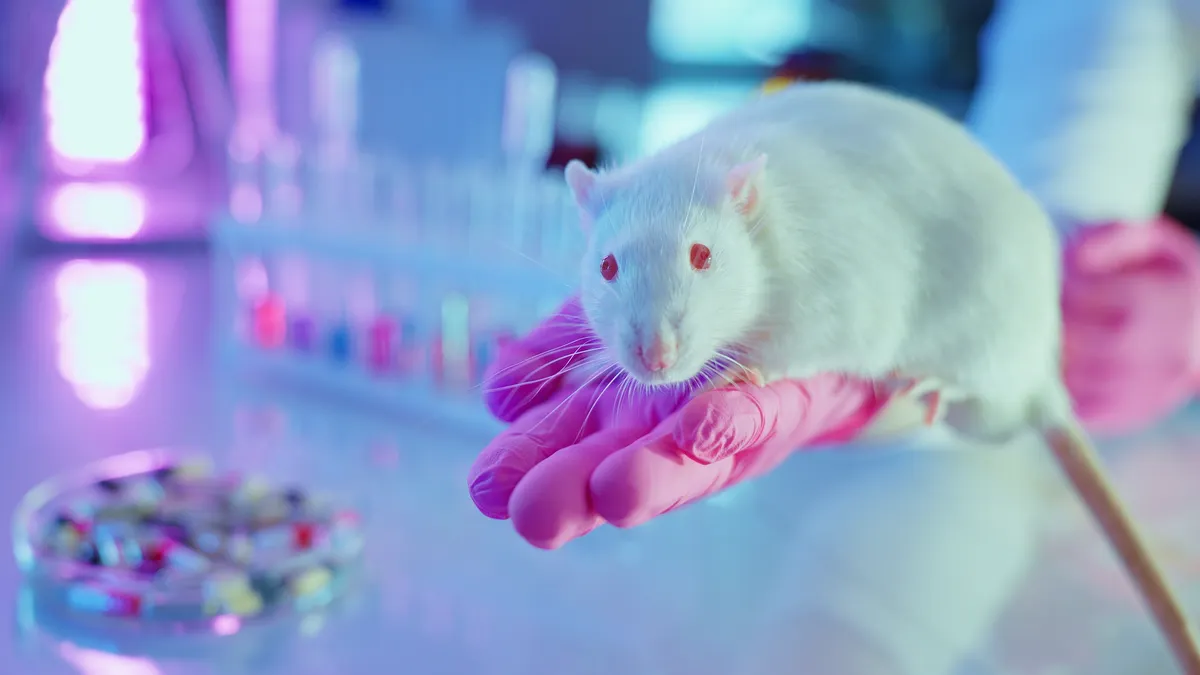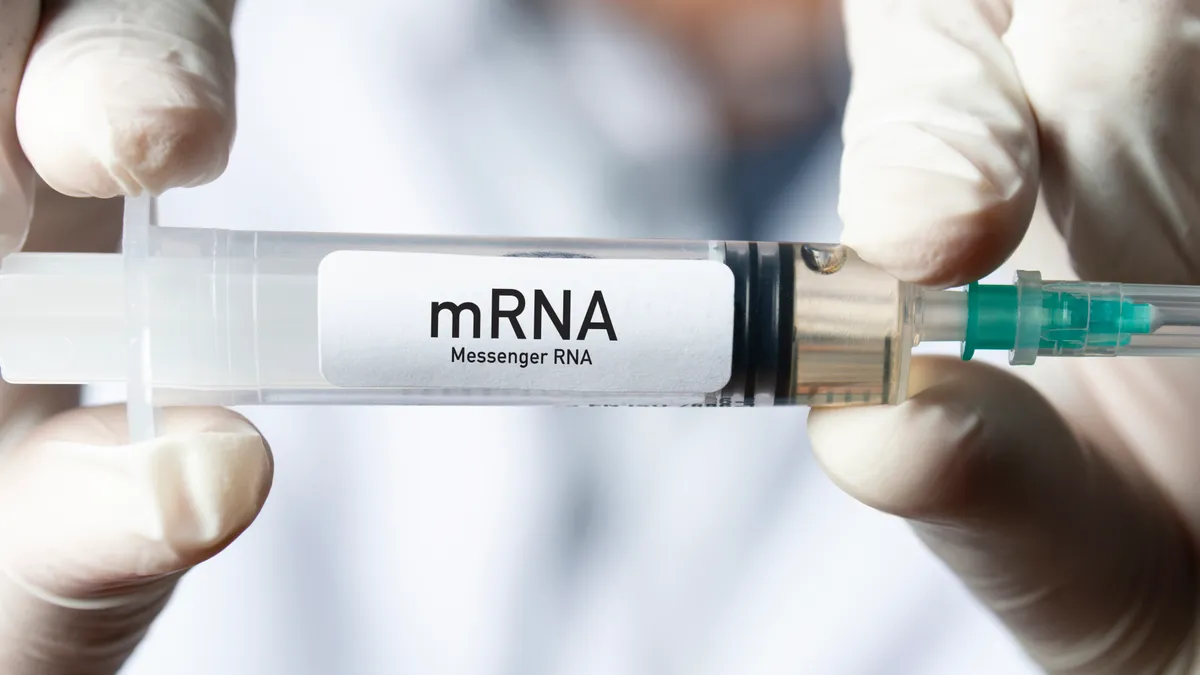Roberto Caricchio has studied lupus for nearly three decades. He’s witnessed steady, but slow, progress in how the frustratingly complex autoimmune disease is understood and treated.
The past few years have been different. Promising early research from a team of German scientists has shown that cellular medicines can drive lupus into remission in ways other drugs can’t. The findings have sparked a surge in industry interest, leading to the start of about a dozen clinical trials. Many more are on the way.
“It’s unprecedented,” said Caricchio, head of UMass Chan Medical School’s rheumatology department. “Sometimes I have to sit down and take a deep breath.”
The latest evidence was on display last week, when leading scientists and physicians in autoimmune disease research gathered in Austria for the European Alliance of Associations for Rheumatology’s annual meeting. Georg Schett, whose team at Friedrich Alexander University, Erlangen-Nurnberg in Germany set off the current bonanza, opened the meeting with new results from his team’s study. The data show cell therapy continued to benefit almost all treated participants with several autoimmune conditions. Some remissions have lasted three years.
“I’m very excited,” said Schett, during a press conference Friday. “When we started this three years ago, we did not know where it would go.”
A bevy of companies, including Kyverna Therapeutics, Cabaletta Bio and Novartis, aim to show that Schett’s findings are just the start. At the meeting, they shared updates from clinical studies of these so-called CAR-T therapies in lupus and other autoimmune conditions, like myositis and systemic sclerosis.
The new results are from small clinical trials and represent very early steps in what will likely be a yearslong effort to prove these treatments — engineered from a patient’s own cells and proven against certain cancers — can rewire the immune systems of people with inflammatory diseases. They hint at the approach’s potential, but also the high bar drugmakers will have to clear to succeed.
For instance, Cabaletta said that, of the first two people it treated with CAR-T therapy, one no longer needs other drugs and the other is weaning off steroids. Kyverna, which has accumulated the most data of any company in the field so far, reported similar results in six of seven lupus patients given CAR-T, some of whom were treated more than six months ago. Another, with the disease myasthenia gravis, hasn’t had evidence of disease or needed other medications for one year following treatment.
“We are showing that this story about an ‘immune reset’ is taking some shape and form,” said Kyverna CEO Peter Maag, in an interview.
Similarly encouraging responses to CAR-T were reported in other tests by Novartis as well as biotechs iCell Gene Therapeutics and JW Therapeutics.
Across these trials, participants have mostly experienced mild forms of the immune and neurological side effects associated with CAR-T — a relief to researchers as patients’ risk tolerance in autoimmune disease is lower than in people with deadly cancers.
Before beginning testing in 2021, “we were pretty scared by potential safety issues,” Schett, who serves on Kyverna’s and Cabaletta’s scientific advisory boards, said on Friday. “Now we are much more relaxed.”
Still, effective autoimmune disease treatments already exist, so the bar is higher to introduce cell therapy. And CAR-T drugs remain costly, complex to manufacture and largely only available at specialized treatment centers. It’s unclear whether long-term health issues, such as the secondary malignancies that have been reported in rare cases among cancer patients who’ve received CAR-T, will also occur in people with autoimmune disease.
Cell therapy is “very promising, but I'm not sure that I would use it as my first, second or even third option,” said Daniel Wallace, chief of rheumatology at City of Hope and Cedars Sinai Medical Center. He isn’t involved with any of the companies currently conducting autoimmune cell therapy research.
The therapies are only worth it “if we can put somebody who has life-threatening organ disease in remission for years,” he said.
To that end, analysts are watching how well these therapies free people from needing the many immunosuppressive drugs they typically take. At EULAR, Schett revealed one myositis patient relapsed after 18 months of follow-up, while Kyverna said one lupus patient treated with its therapy relapsed after five months. Nine people who received Kyverna’s therapy across trials in different diseases, including that lupus patient, are still on some sort of immune medicine. They have either experienced recurrence or have more advanced disease. In the latter case, it may take longer for CAR-T therapy to show benefit, said Chief Medical Officer James Chung.
Cabaletta reported some symptom improvement in the two treated lupus and myositis patients, but neither are disease free yet.
Wall Street analysts were generally impressed by the results. Jefferies’ Kelly Shi said Cabaletta’s data “fulfilled the goal” of replicating Schett’s results. Thomas Smith, of Leerink Partners, noted the majority of patients treated with Kyverna’s therapy have had a “significant response,” and the numbers could improve with time. Yet shares of both companies fell double digits Friday, with Kyverna’s stock plummeting by 34%.
Kyverna claims the one reported relapse was partly due to the lower dose level the participant received. Maag also noted how, in lupus patients, often “multiple things are going on” that require therapy. Some investigators prefer to keep their patients on a low dose of an oral steroid and they are allowed to do so in Kyverna’s trials. With more time, more patients may eventually stop taking other drugs, Maag said.
“Ultimately, the goal is to taper people off of steroids completely,” he said.
“We will have side effects,” said Cabaletta CEO Steven Nichtberger, on a conference call with analysts on Friday. “We will have failure to treat effectively in some patients, and that's fine, as long as what we have is at least as good, if not better, than any other company in the industry.”
There are still many unanswered questions about autoimmune cell therapy. Caricchio, of UMass, notes the treatments haven’t been tested in many Black people, who are more likely to have aggressive forms of lupus. He pointed out that people with particularly significant kidney damage, a hallmark of the condition, may not respond as well. And infections observed in testing, while mild so far, bear watching, he said.
Personalized cell therapies are also being joined in clinical trials by treatments made from donor cells or natural killer cells, as well as by dual-targeting antibody drugs called T cell engagers. All are seen as more convenient and easier-to-manufacture options that some analysts think could challenge CAR-T therapy. A similar pattern has played out in oncology, where enthusiasm for CAR-T has been tempered by success with other technologies.
“This is the first CAR-T approach. It’s a proof of concept and shows this can work in systemic autoimmunity,” said Caricchio. “I do truly believe that the next decade will be a life-changing experience for physicians and for patients.”






















